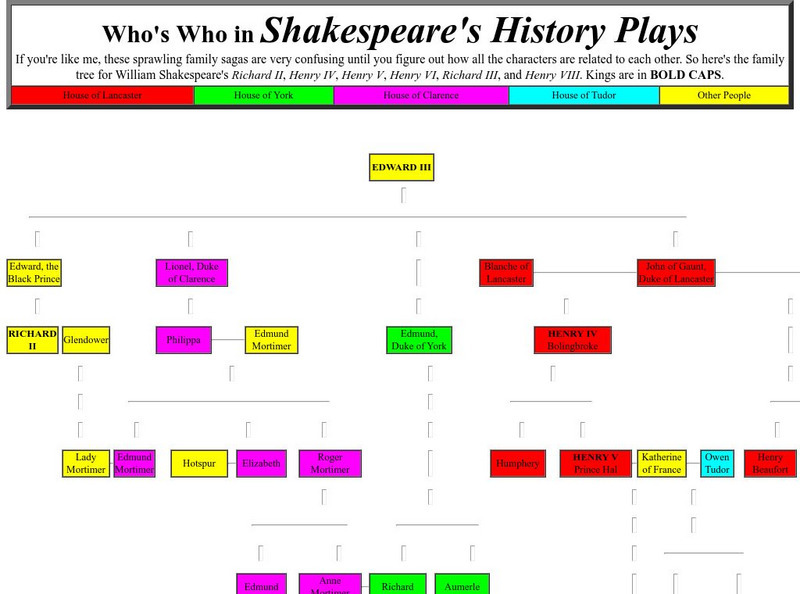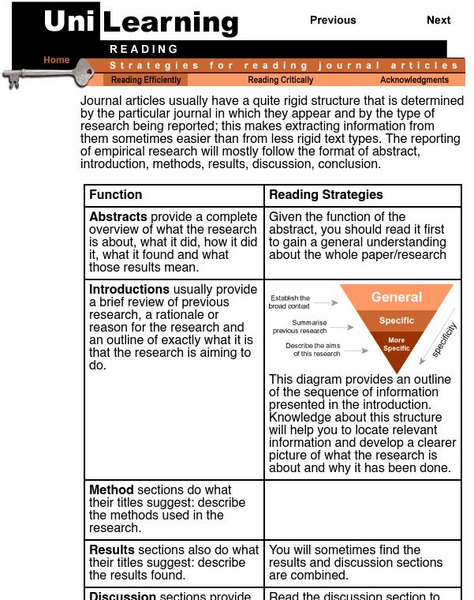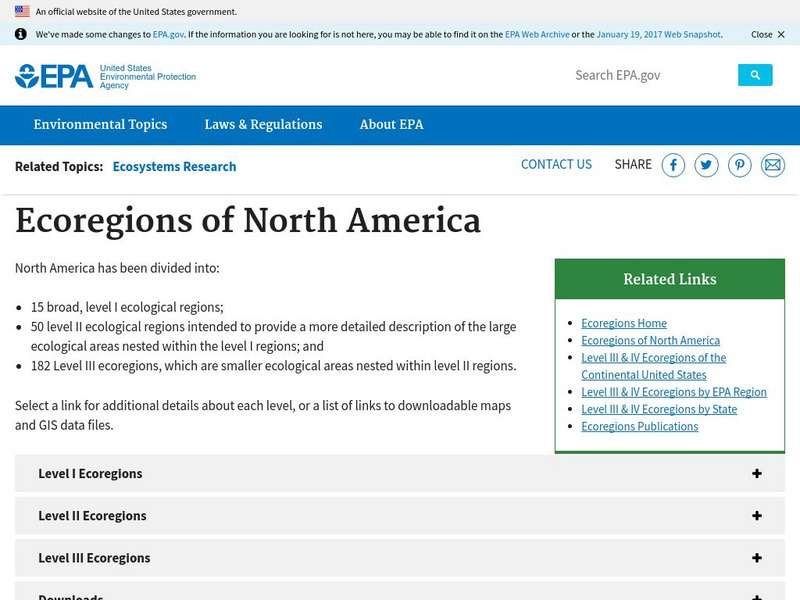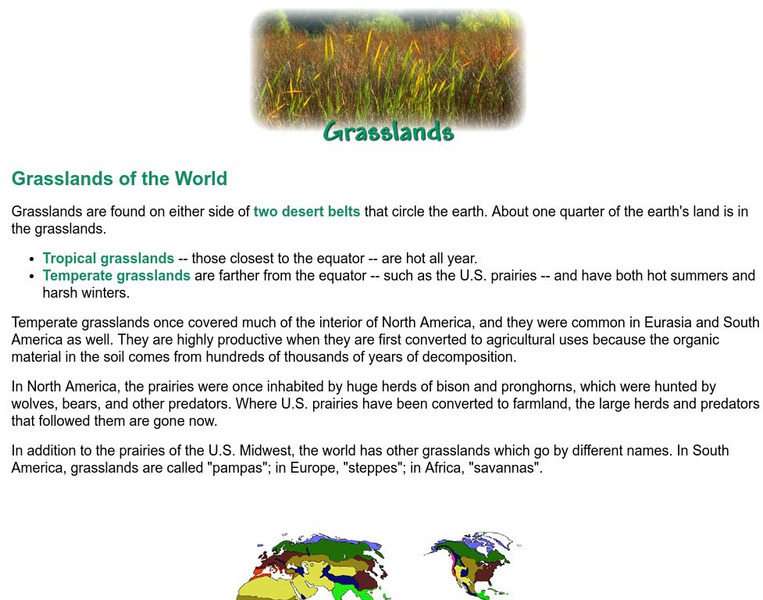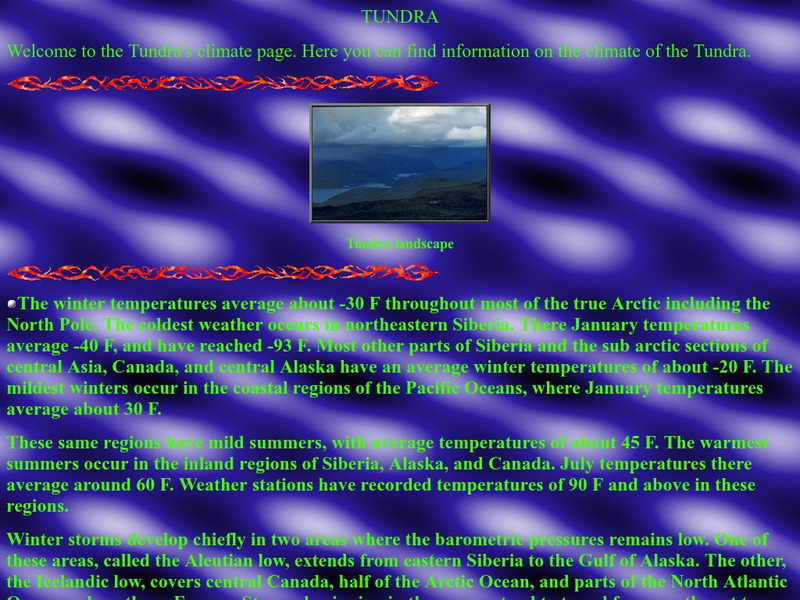Teaching American History
Teaching American History: Origins and Politics of the Bill of Rights
Use an interactive spreadsheet to investigate both the origins and the politics of the Bill of Rights. Peruse the proposals made by James Madison and which ones were adopted. Click on the color-coded documents to view them.
TeachEngineering
Teach Engineering: Graphing Your Social Network
Students analyze their social networks using graph theory. They gather data on their own social relationships, either from Facebook interactions or the interactions they have throughout the course of a day, recording it in Microsoft...
NASA
Nasa: Dynamic Ocean Topography With Current Arrows
Color-coded image of ocean currents depicts directional flow and speed of the currents across the globe.
National Weather Service
National Weather Service: Precipitation Analysis
This interactive map of the US is color coded to show the quantity of rain received throughout the country. Selections can be made to focus on certain areas and certain time frames.
University of Richmond
American Panorama: Mapping Inequality Redlining in New Deal America
Redlining is the act of making it difficult or impossible for people in certain areas to access mortgage financing and thus become homeowners. In between 1935-1940 the Home Owners' Loan Corporation staff members assigned grades to...
ClassFlow
Class Flow: 2 Letter State Abbreviation Codes
[Free Registration/Login Required] Students will use Internet resources such as the USPS website to locate the 2-letter state abbreviation codes. Using the floating keyboard and font/color tools, they will display the correct code on...
Other
Ecological Regions of North America [Pdf]
A helpful map of North America which color codes its 15 ecological regions. Click on the different regions for a brief description of the area. Requires Adobe Reader. [PDF]
Other
Who's Who in Shakespeare's History Plays
Here is a color-coded family tree to help you understand how the historical characters in Shakespeare's series of history plays are connected. As a bonus, you also get a brief synopsis of each of the plays.
Other
Uni Learning: Strategies for Reading Journal Articles
Clear explanation of how journal articles tend to be structured, as well as tips for extracting information from each part. Includes sample, color-coded exercises.
US Environmental Protection Agency
Epa: Ecological Regions of North America
A helpful map of North America which color codes its 15 ecological regions. Click on the different regions for a brief description of the area.
CK-12 Foundation
Ck 12: Plix: Punnett Squares
[Free Registration/Login Required] Use the color coding to help you complete the Punnett Square. You will need a sign-in to help you access this media, but it will be worth your time!
University of Victoria (Canada)
Study Zone: Forms of Possessive Pronouns and Adjectives
Basic information and a follow-up exercise about possessive pronouns and adjectives. Color-coded examples are provided for easy understanding.
Physics Aviary
Physics Aviary: Resistor Challenge
This game will help students learn their color codes for resistors. Students will be given a resistor and they have to determine the resistance of the resistor. Students will have three minutes to get as many correct as possible.
Physics Aviary
Physics Aviary: Resistor Creation Challenge
This game will help students learn their color codes for resistors. Students will be given a resistance and they have to determine which combination of colors will match that resistance. Students will have three minutes to get as many...
Science Struck
Science Struck: Metalloids in the Periodic Table
Discusses the history and organization of the periodic table, where the metalloids fit in, and their properties. Includes color-coded periodic table of elements.
University of Washington
University of Washington: Knights of Labor History and Geography 1869 1899
Overview of the Knights of Labor with maps showing the expansion of the Knights by color-coded time period, the number of local assemblies in each LA county, and more.
Arizona State University
Asu School of Life Sciences: Monster Manual
Here is the place where you can build your own monster. All living things, including monsters, have an instruction manual for building and making their bodies work. These instructions use a special code, most often known as a genetic...
TeachEngineering
Teach Engineering: Dna Build
Students reinforce their knowledge that DNA is the genetic material for all living things by modeling it using toothpicks and gumdrops that represent the four biochemicals (adenine, thiamine, guanine, and cytosine) that pair with each...
Missouri Botanical Garden
Missouri Botanical Garden: Grasslands of the World
This site from the Missouri Botanical Garden explores the two types of grasslands: tropical and temperate. A brief overview of the grasslands of the world is provided, including a color-coded map.
Other
League of Nations: 1920 1946 Map
A color-coded map from Matthew White's Homepage showing which countries were a part of the League of Nations during specific times in history.
Other
Thurston High School: The Tundra Climate
Site discusses and analyzes the daily weather in the tundra. Provides a map of the world that is color-coded to show the different biomes and systems of the world.
Quia
Quia: Weather Game Flashcards
Improve your memory of Spanish vocabulary words pertaining to weather expressions by playing the flashcard game. On one side of the card is a word in Spanish dealing with the weather and when you click the card it turns over and displays...
Quia
Quia: Ap Expressions With Tener
A set of four interactive games that focus on the vocabulary for expressions with "tener". If you click on list of terms you can print out a color-coded list of vocabulary words.
Wyzant
Wyzant: Simplifying Using the Foil Method
WyzAnt provides color coded examples for the foil method of factoring.
Other popular searches
- Color Coding Sums
- Color Coding Sentences
- Energy Pyramid Color Coding
- Color Coding Jerseys
- Color Coding States
- Color Coding Maps
- Color Coding a Picture






![Ecological Regions of North America [Pdf] Handout Ecological Regions of North America [Pdf] Handout](https://static.lp.lexp.cloud/images/attachment_defaults/resource/large/FPO-knovation.png)
